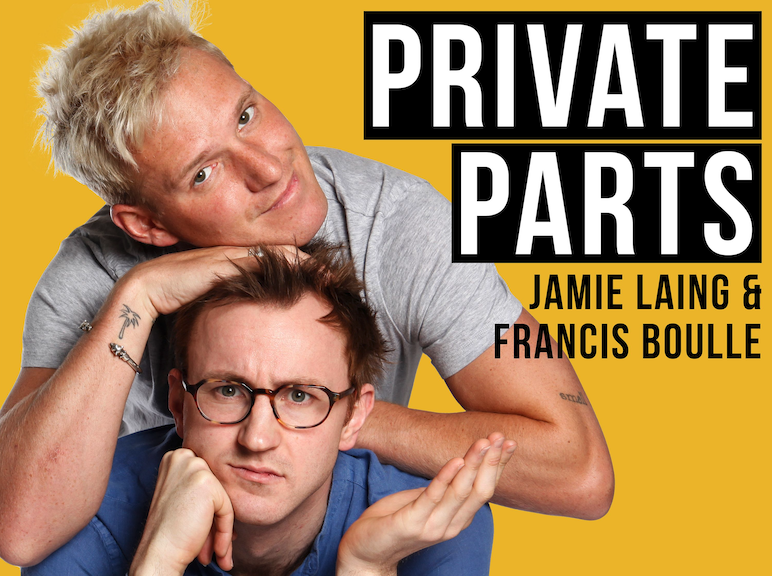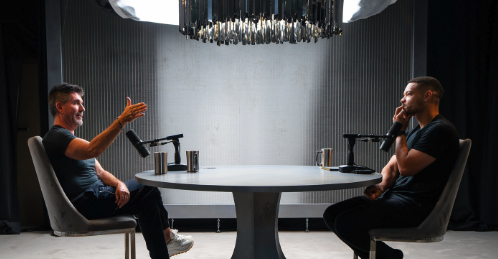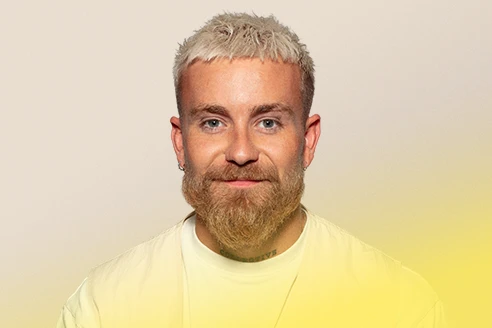Lessons Every Brand Needs to Learn from Podcasters
_Snap-Blog%20Header-Podcast.webp)
What makes podcasting so powerful?
What makes podcasting so powerful is its unique ability to connect on a human level. The authenticity, intimacy, and vulnerability shared between podcasters and listeners are unparalleled. Unlike traditional media, podcasts offer an unfiltered, real-time conversation that feels personal, almost as though the hosts are speaking directly to the listener. This ability to build trust is why some of today’s most successful podcasters are also the most influential figures in the business world.
Take Steven Bartlett, for example. As the host of The Diary of a CEO, Bartlett has built a community that goes beyond the casual listener. He’s not just sharing business insights; he’s creating a space where his audience can engage with real, raw, and often difficult topics. He openly discusses mental health, challenges, and personal growth. This vulnerability makes listeners feel like they are part of the conversation, not just passive consumers of content. Bartlett’s success isn’t just about his interviews with celebrities and entrepreneurs—it’s about how he makes his audience feel connected to him and to the ideas being discussed.
Another great example of a podcaster who seamlessly blends business with personal branding is Jamie Laing, the co-founder of the confectionery brand Candy Kittens and the host of the popular podcast “Private Parts.” Jamie’s podcast, which he co-hosts with his business partner Francis Boulle, delves into personal stories, humorous anecdotes, and candid discussions about everything from relationships to entrepreneurship. It’s a mix of entertainment and education, all wrapped in a conversational style that feels like you’re sitting in on a chat with friends.
What makes Jamie Laing’s approach to podcasting particularly impactful is his ability to create an approachable and relatable environment. While he’s widely recognised for his role in the British reality TV show Made in Chelsea, Jamie is also a savvy entrepreneur. Through Candy Kittens, Jamie has built a thriving business centred on premium, natural sweets. But it’s through his podcast that he’s truly cultivated an engaged community.
On Private Parts, Jamie and Francis talk about more than just business. They tackle everything from mental health challenges to the nuances of friendships and romantic relationships. This open, vulnerable approach allows Jamie to connect with his audience on a much deeper level than a traditional business podcast might. By sharing his personal ups and downs, including the highs of business success and the lows of the struggles, he humanises the journey of being an entrepreneur.

Podcasters like Steven Bartlett and Jamie Laing show us that community building is the true backbone of podcasting. They offer their listeners something more than just entertainment, they offer a sense of belonging. Their audiences are drawn in by the authenticity of the conversation, the vulnerability of the hosts, and the shared experience of being part of something bigger than themselves or their business.
So, what can brands learn from these podcasters and their ability to connect with listeners?
First, it’s the importance of vulnerability. Sharing your authentic self builds trust with your audience. It’s not just about talking to your audience; it’s about sharing your journey, your struggles, and your wins. When listeners see the human side of a host, they feel more connected.
Second, it’s about making your audience feel like they’re part of something. Both Bartlett and Laing have created spaces for their fans to engage directly with them, whether it’s through social media, or live events. These interactions turn a passive listener into an active participant. Your audience wants to feel involved, and when you make them feel like they’re contributing to the conversation, they become more invested in your message.

Finally, building a community isn’t about reaching as many people as possible; it’s about creating meaningful connections with the right people. Successful podcasters understand this. They’re not just looking for listeners; they’re looking for fans who resonate with their message, their story, and their values. It’s about creating a deep, engaged community that will stick with you for the long haul.
As businesses and brands, there’s a lot we can take from the podcasting world. If you want to truly connect with your audience and build a loyal, engaged community, you must focus on authenticity, engagement, and value. It’s about more than just delivering a product or service, it’s about creating an experience that your audience wants to be a part of. Whether it’s through storytelling, vulnerability, or direct interaction, the key to success lies in building trust and creating a sense of belonging.
In the age of content saturation, the brands that succeed are the ones that create relationships, not just transactions. And as we look to the future, podcasting has proven to be a blueprint for building these kinds of communities—communities where people feel heard, valued, and connected.
So, the next time you’re thinking about how to grow your brand, take a page out of the podcaster’s playbook. Focus on building relationships, creating real conversations, and, most importantly, being authentic. That’s how you build a community that lasts.
Built for what's next
The world’s noisy, competitive, and changing fast.
Our approach helps you cut through and stay ahead. From insight to execution, we create work that’s not just good-looking, but brand-building and future-ready.
